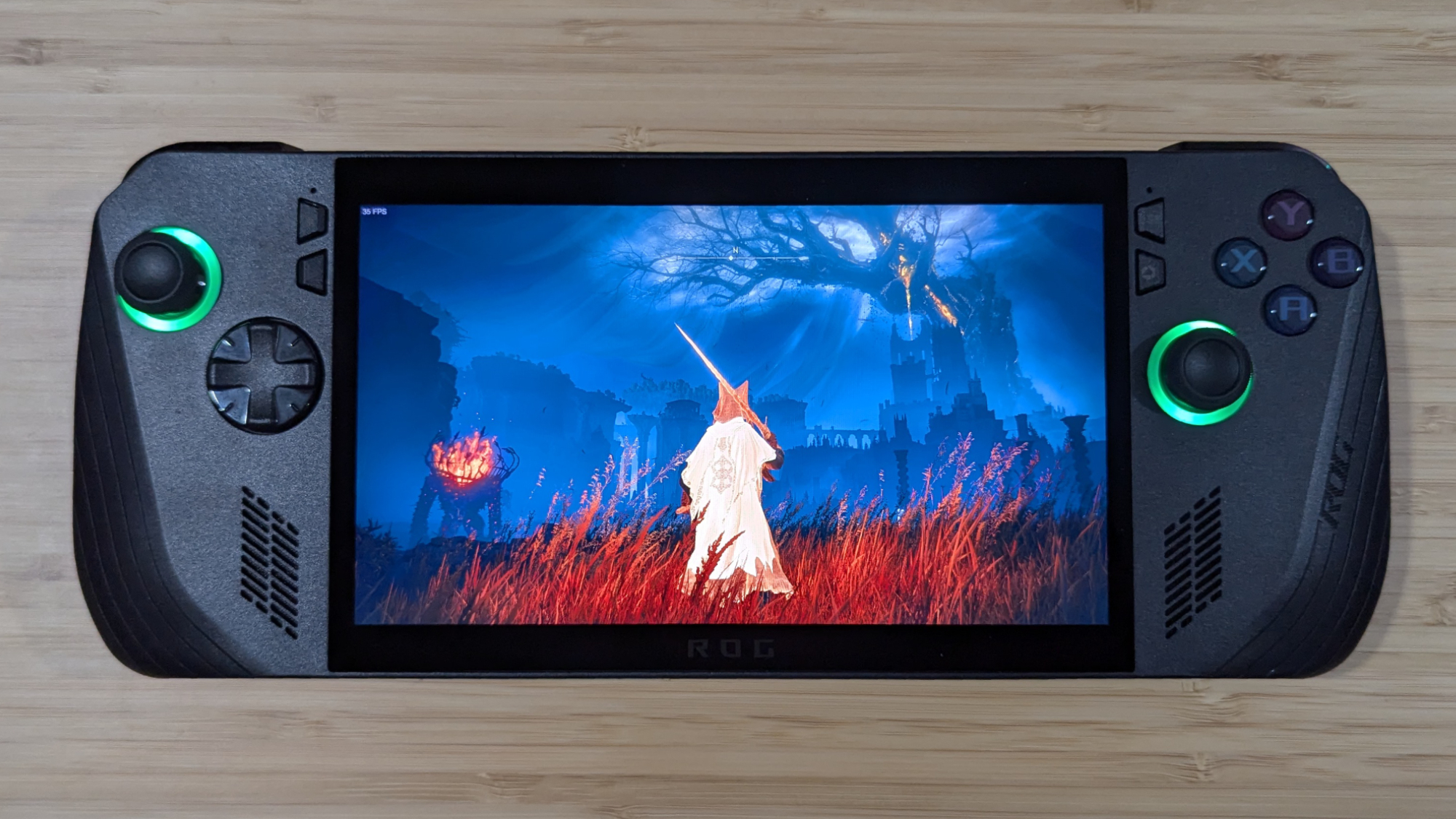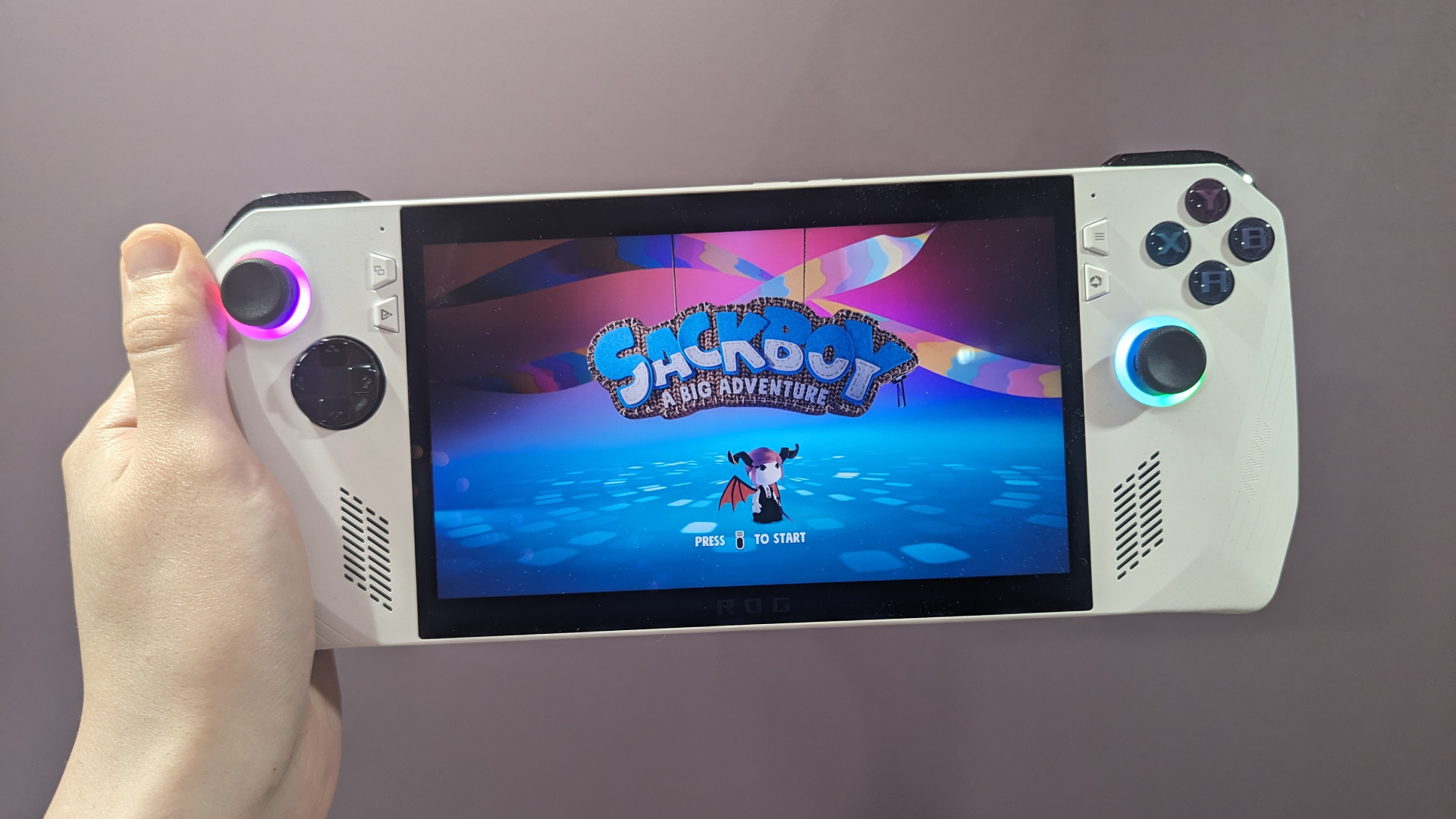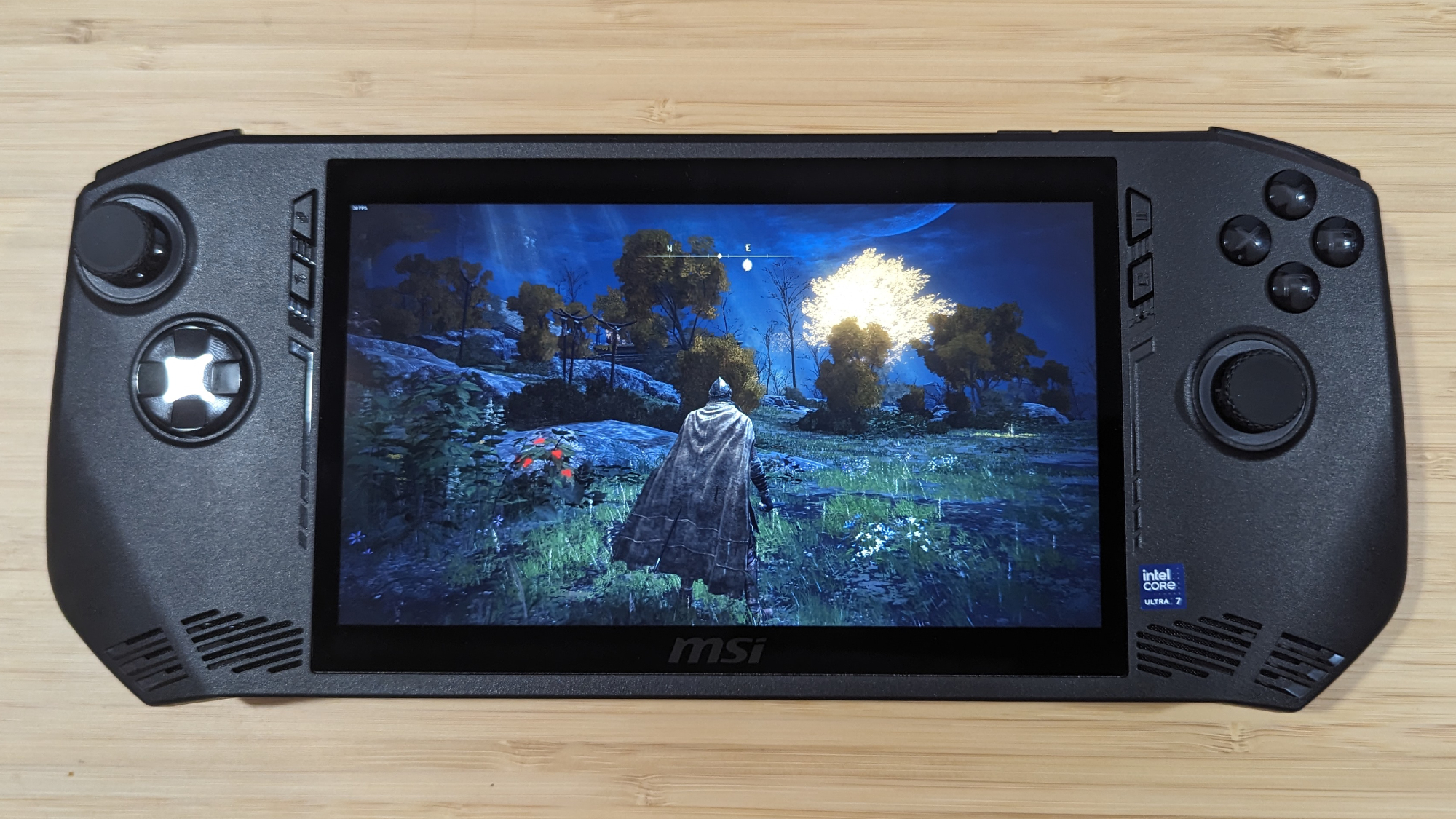Asus ROG Ally battery life: This Windows gaming handheld blows the competition away
If you're in the market for a Windows gaming handheld and battery life is a priority, the Asus ROG Ally might be your ideal pick

Long lasting battery life on your Asus ROG Ally is vital for extended gameplay session, but how does the device stack up against other gaming handhelds?
The launch of the Steam Deck signaled an industry-wide obsession with gaming handheld PCs, as several hardware manufacturers like Asus, Lenovo, MSI, Zotac, Adata, and Acer are throwing their hats into the ring.
There are plenty of reasons to pick one gaming handheld over the other, as some offer unique features like the Lenovo Legion Go's higher resolution display and detachable icons.
But beyond graphical power and specifications, it's important to think about battery life.
As we head towards the end of the year and onto the next, more of these devices are set to launch and the battle for battery life supremacy will get even more complicated.
For now, however, we've tested six gaming handhelds and compared their battery life against one another. Let us see which device comes out on top.
ROG Ally battery life vs other handhelds
The six gaming handhelds that we've tested are: Steam Deck, Asus ROG Ally Z1 Extreme, Asus ROG Ally Z1, Asus ROG Ally X, Lenovo Legion Go, and MSI Claw. All of these run Windows except for Steam Deck, which features its own Linux-based operating system.
Sign up to receive The Snapshot, a free special dispatch from Laptop Mag, in your inbox.
Other gaming handhelds that have yet to launch include the MSI Claw 8 AI Plus, Acer Nitro Blaze 7, Zotac Zone, and Adata XPG Nia. We're excited to take a look at the battery life on these upcoming devices, but here's a rundown of what we've tested thus far.
We put each of these devices through the Laptop Mag battery life test, which involves continuous web surfing over wifi at 150 nits.

The original model of the Asus ROG Ally, which features the more powerful Z1 Extreme processor, lasted 5 hours and 51 minutes with its 40Whr battery. The slightly weaker model featuring a base Z1 processor lasted 6 hours and 17 minutes.
That may not seem particularly excellent, but it's actually the best of the original Windows gaming handhelds.
Lenovo Legion Go wasn't up to the task with its 49.2Whr batter, lasting only 4 hours and 6 minutes on the same test.
MSI Claw, which is powered by an Intel Core Ultra 7 155H processor with a 53Whr battery, did a decent bit better at 6 hours and 8 minutes.
The Steam Deck, which is the only device not running Windows, performed the worst in this test with its 40Whr battery, coming in at 3 hours and 51 minutes before it ran out of juice.
| Handheld | Battery life (hours:minutes) | Battery Size |
|---|---|---|
| Asus ROG Ally Z1 Extreme | 5:51 | 40Whr |
| Asus ROG Ally Z1 | 6:17 | 40Whr |
| Asus ROG Ally X | 8:19 | 80Whr |
| Lenovo Legion Go | 4:06 | 49.2Whr |
| MSI Claw | 6:08 | 53Whr |
| Steam Deck | 3:51 | 40Whr |
Prior to the launch of the Asus ROG Ally X, which is the first of the Windows gaming handhelds to receive a mid-generation refresh, the Asus ROG Ally Z1 featured the best non-gaming battery life, with MSI Claw in a close second place.
However, the launch of the Asus ROG Ally X raised the bar. Asus claimed in its teaser that one focus of this mid-generation refresh would be improving longevity, and that reflects in its upgrade from 40Whr battery size to 80Whr.
The result is that the Asus ROG Ally X lasted 8 hours and 19 minutes before running out of juice, pulling just over two hours ahead of second place. In other words, the Asus ROG Ally featured the best battery life in our non-gaming tests.
ROG Ally gaming battery life vs other handhelds
Our in-house battery life test is for casual use, and has no bearing on the longevity of a device while gaming.
We ran PCMark 10's battery benchmark, which runs a 3DMark window in a continuous loop until the system runs out of juice, for all six of these systems. It's designed to give a more accurate look at a device's battery life while gaming.

Under this lens, the best performing devices shift. For example, even though MSI Claw was solidly in third place in the previous test, it yielded the worst battery life while gaming, lasting only 1 hour and 22 minutes before dying.
Both the Asus ROG Ally with Z1 (1:43) and Z1 Extreme (1:46) peformed similarly, meaning you shouldn't worry about longevity when deciding between one chip or the other.
And even though Steam Deck's performance in the previous test was dreadful, it managed to keep up decently well, lasting 1 hour and 40 minutes before running out of juice.
| Handheld | Gaming battery life (hours:minutes) | Battery Size |
|---|---|---|
| Asus ROG Ally Z1 Extreme | 1:46 | 40Whr |
| Asus ROG Ally Z1 | 1:43 | 40Whr |
| Asus ROG Ally X | 3:04 | 80Whr |
| Lenovo Legion Go | 1:59 | 49.2Whr |
| MSI Claw | 1:22 | 53Whr |
| Steam Deck | 1:40 | 40Whr |
The Lenovo Legion Go does surprisingly well considering its larger and higher-resolution display, lasting 1 hour and 59 minutes.
While the aforementioned devices last longer than one hour, none of them break the two hour threshold. Not only does the Asus ROG Ally X do this, but it goes a step further, yielding 3 hours and 4 minutes before running out of juice.
Considering PCMark 10 isn't running an actual game, I played Elden Ring at 1080p with graphics and ray tracing set to maximum, with operating mode set to Turbo.
The Asus ROG Ally X lasted 2 hours and 15 minutes before running out of juice, while the Asus ROG Ally Z1 Extreme came in at 1 hour and 1 minute.
Both PCMark 10 and my own gaming test showcase a little under or over double the battery life while gaming with the Asus ROG Ally X.
Asus ROG Ally X has the best battery life on any Windows gaming handheld.

Self-described art critic and unabashedly pretentious, Claire finds joy in impassioned ramblings about her closeness to video games. She has a bachelor’s degree in Journalism & Media Studies from Brooklyn College and five years of experience in entertainment journalism. Claire is a stalwart defender of the importance found in subjectivity and spends most days overwhelmed with excitement for the past, present and future of gaming. When she isn't writing or playing Dark Souls, she can be found eating chicken fettuccine alfredo and watching anime.
